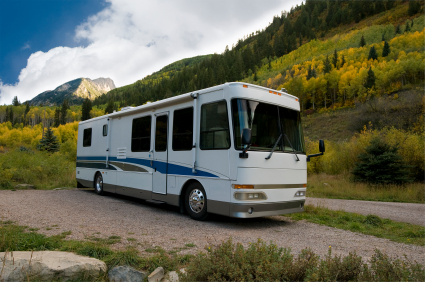RV Insurance
Understanding the need for RV insurance, how different RVs are insured differently, and introducing extras often associated with RV insurance.
There’s nothing like a road trip in a fully equipped recreational vehicle. Of course, as with any other vehicle you need to be insured before you hit the road. There are several ways to go about getting that insurance depending on what kind of RV you have, as well as several options to consider.
How an recreational vehicle is insured largely depends on what kind of RV it is. A self-propelled RV such as a Class A mobile home would be insured in much the same way as an automobile. A small, non-wheeled RV such as a camper shell would be insured on an inland marine policy. Finally, an RV trailer would be insured much the same as, you guessed it, a trailer.
Insuring a Self-Propelled RV
Self-propelled RVs range from large Class A mobile homes, which can easily cost six figures, to Class B mobile homes, which are little more than customized vans. There are also Class C mobile homes which fall somewhere in between. Since they are full vehicles in their own right, they are insured in much the same way as any other car or truck. You need ample liability coverage as well as any full coverage required by your bank if you’re still making payments. Of course, you can still choose full coverage if the RV is paid off.
It’s important to be properly licensed to drive these vehicles, especially Class A mobile homes which can be big enough to require a CDL to operate legally.
Insuring RV Trailers
Towable RVs range from large fifth-wheelers and sport utility RVs to modest tent trailers. As trailers, they are insured as trailers. Trailers do not have liability coverage (that is afforded by the towing vehicle), so only full coverage is available on these vehicles. As with a self-propelled RV, make sure you take enough full coverage to fulfill any lienholder requirements.
RV trailers are often insured on an actual cash value basis rather than a stated value basis associated with commercial trailers. Consult with your insurance agent for more information specific to your situation.
Insuring Camper Shells and Truck Campers
It might be something of a misnomer to call these accessories “recreational vehicles” since they have neither motors nor wheels, but they are RVs all the same. These RVs are generally covered on an inland marine policy, however some companies may treat them separately.
Getting the RV Insurance Extras
Because of its special status as both a means of transportation and a living quarters, RV insurance can blur the lines between traditional auto insurance and provide coverages normally found in homeowners insurance coverage. For example, many RV insurance policies provide liability protection at a campsite while the RV is parked, similar to the liability coverage seen in homeowners insurance.
Personal property coverage that extends beyond the standard “factory installed and bolted down” philosophy seen in other forms of auto insurance may also be available, analogous to the personal property coverage in homeowners insurance policies. Consult with your agent to see if these coverages are available and included in your RV insurance package.
Trackback from your site.

